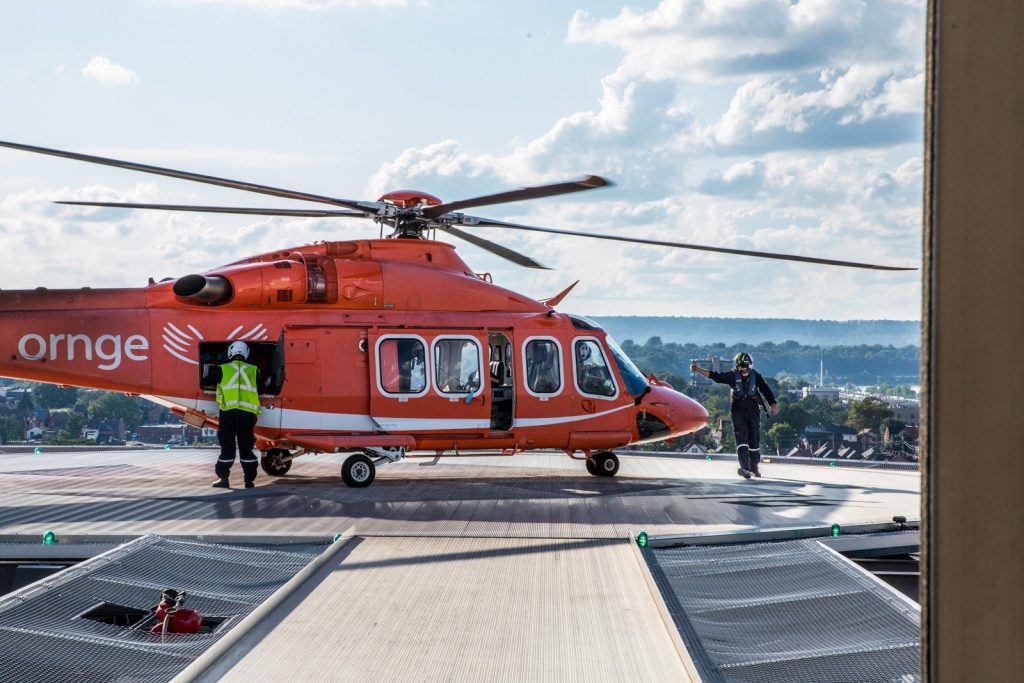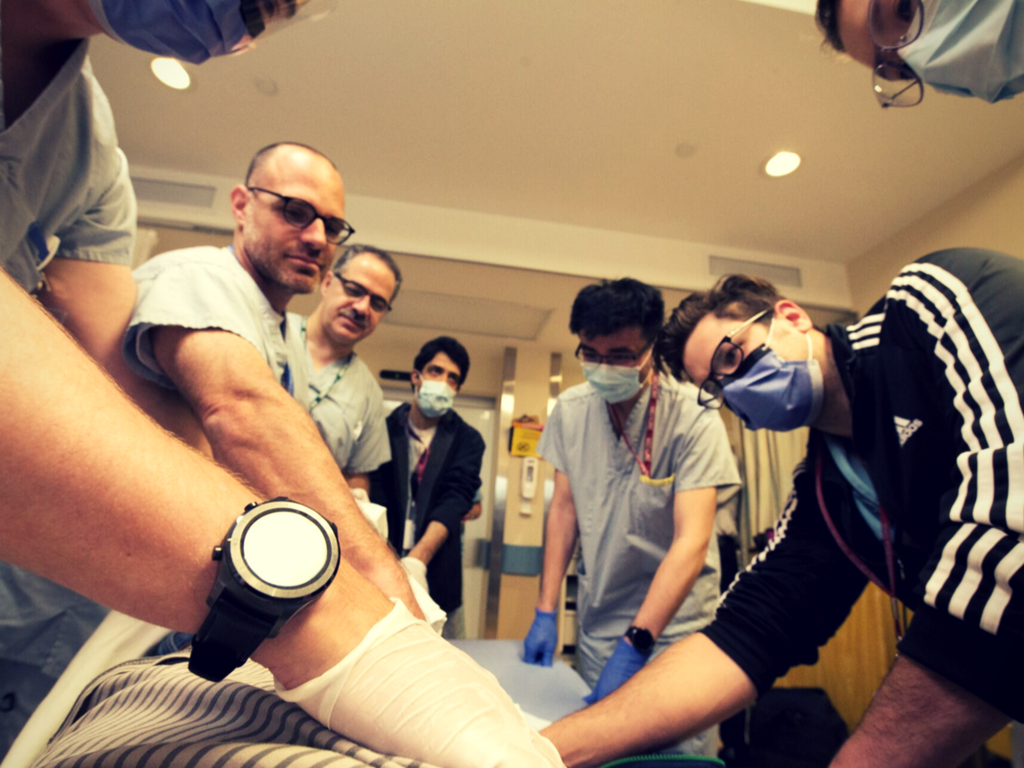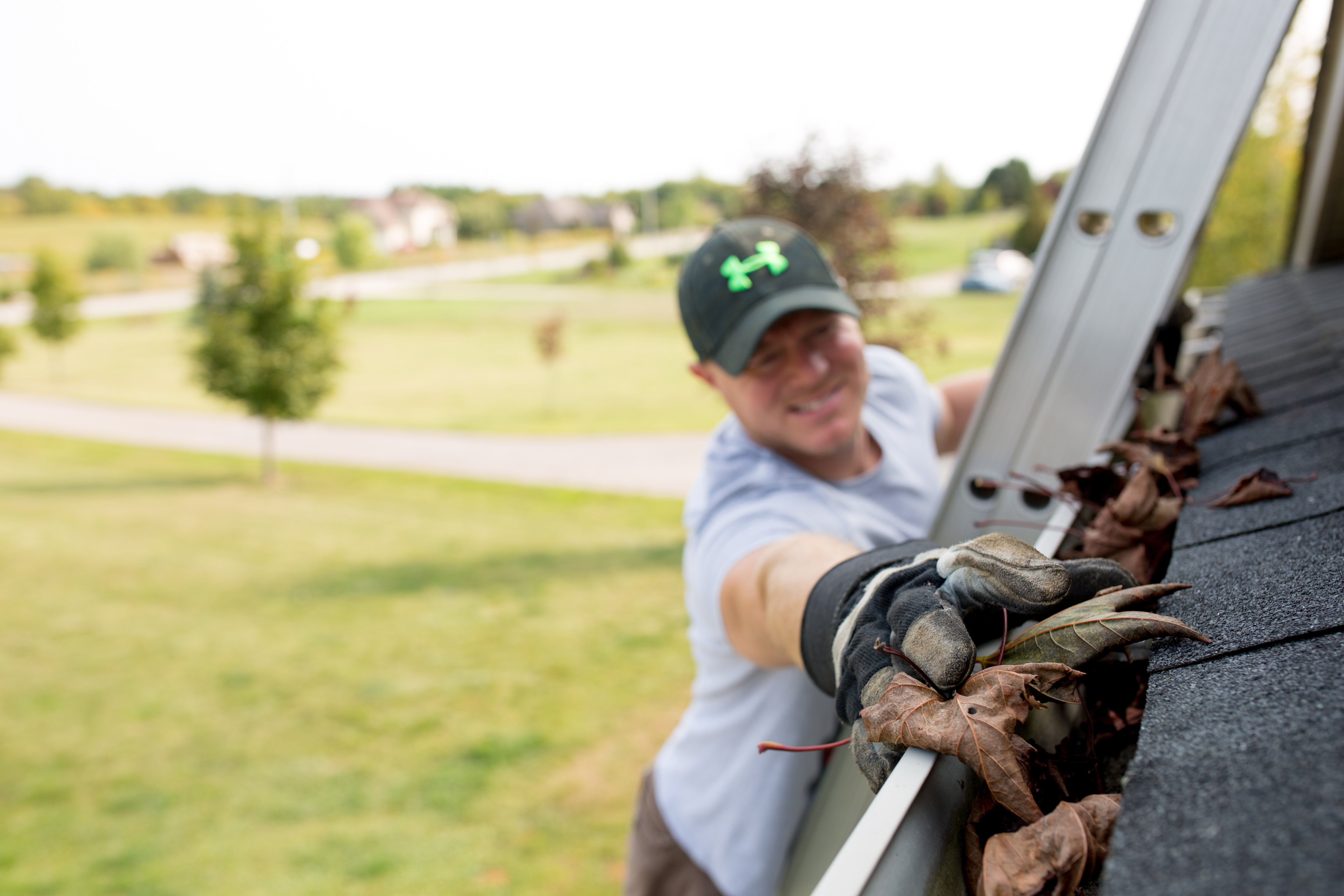
HHS urges community to stay safe as “trauma season” arrives
While some mark the Victoria Day long weekend as the start of summer, for the trauma team at Hamilton Health Sciences’ (HHS) Hamilton General Hospital (HGH), it signals the unofficial kickoff of “trauma season.”
And this year, trauma numbers are already higher than normal, which has staff and physicians worried.
“Trauma season typically starts in June,” says Dr. Kuldeep Sidhu, chief of emergency services at HHS. “But May seemed to be busy in the emergency department and operating rooms this year.”
Care in the trauma unit includes resuscitation and surgery, when someone’s life is seriously at stake. Trauma patients often need multiple services ranging from cardiac care to plastic surgery to brain surgery.
Dr. Sidhu says the team saw more of the following than usual in March, April and May:
- overdoses and intoxications with alcohol and drugs;
- domestic and random acts of violent assaults;
- bicycle accidents, horse riding injuries, and industrial accidents; and
- injuries from people falling down stairs, off ladders and roofs
At the time of publishing, intensive care unit (ICU) admissions due to COVID-19 made up about 30%, while the remaining 70% are non-COVID related ICU admissions.
While not all non-COVID ICU admissions are related to trauma, some of them are a result of common traumatic injuries such as falls, gunshot or stab wounds, or accidents involving motor vehicles, motorcycles or pedestrians.
Regional Trauma Centre prepares for trauma season
HGH is home to the Regional Trauma Centre, serving adults in Hamilton and the surrounding area of 2.2 million residents.
It’s during “trauma season” that the number of people coming to the emergency department (ED) with traumatic injuries increases compared to other times in the year.
Some people arrive to the ED by car, others by ambulance or helicopter.
Some people need surgery for internal bleeding, broken bones or even brain injuries. After treatment for the worst injuries, patients go to the ICU where they receive constant care and are closely watched by a specially trained healthcare team. Often, patients who are in the ICU have a serious health condition or injury, or have just had major surgery.
HHS has had to open additional ICU beds to cope with the high number of patients, from 88 ICU beds up to 126 beds across two sites at Hamilton General Hospital and Juravinski Hospital.
By the numbers
About 25% of trauma patients spend time in the ICU. On average, they spend 6-7 days on the unit.
Trauma visits are up 18.5% in March of this year compared to March 2020. In April 2021, there was an increase of 8% year-over-year.
During a four-month period from January to April 2021, the mean age for trauma patients is early 40s – which is consistent with last year’s data.
Men account for 75% of trauma team activations, which is also fairly consistent with previous years.
About 35-40% of trauma patients are from motor vehicle collisions.
Stabbings have nearly doubled in the first four months of this year compared to last year.
About 20% of all trauma patients arrive with some alcohol in their system.
“It’s more important than ever to be safe to relieve the pressures on our hospitals and ICUs.”
Trauma patients remain a priority
HHS is caring for more ICU patients – both COVID and non-COVID – than the organization would typically have capacity for. HHS has opened an additional 38 beds which has required some other hospital services to be paused, and 240 staff to be temporarily moved to new assignments.
“Although our ICU is stressed, we continue to provide exceptional care for all our regional trauma patients throughout the 22 hospitals we support,” says Denise Riggs, clinical manager of the trauma program.
This long weekend and throughout the summer months, please be safe.
“It’s more important than ever to be safe to relieve the pressures on our hospitals and ICUs,” says Dr. Sidhu. “While exercise and outdoor activities are essential for people’s mental health, it’s important to be aware of the dangers of combining them with alcohol or other drugs. Follow COVID-19 safety measures this summer, and stay safe in the workplace, in your home, and on the road.”





